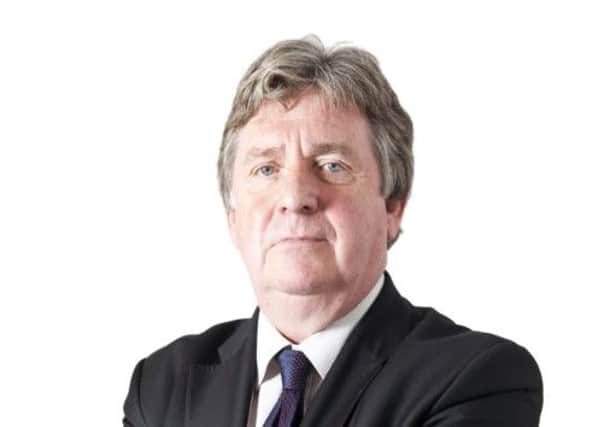Comment: Sound of tyre squealing as Osborne turns


George Osborne has accepted one of the key recommendations of the report of the Parliamentary Commission on Banking Standards, issued with quite some impact yesterday, that an analysis of the merits of a possible break-up of RBS should be conducted. The commission feels such a move may free up RBS’s lending to buttress what is currently a tentative UK economic recovery.
In something of a bombshell, the Chancellor said that, with the benefit of hindsight, RBS should have been split up at the height of the financial crisis in 2008.
Advertisement
Hide AdAdvertisement
Hide AdInstead, the outgoing RBS chief executive Stephen Hester has spent four years cutting £1 trillion out of the unbelievably bloated bank balance sheet he inherited, but with many toxic loans seen as hampering its ability to lend, primarily its assets in Ulster Bank and UK commercial real estate.
Osborne had previously told the banking commission he was unsure a good bank/bad Bank split, hiving off the toxic assets in one fell swoop, was a good idea at this stage of the bank’s turnaround, given the disruption and the possible need to pump more taxpayer money into RBS.
From his comments last night, it looks as if the Chancellor has not so much had a Damascene conversion on the merits of a break-up, but rather a nagging feeling that he may have got it wrong. It takes courage for a leading politician to admit they do not have all the answers, and Osborne should be credited for his candour in agreeing a fresh look at the idea is needed.
Crucially, the political sensitivity of such a break-up of RBS has been alleviated by Osborne stipulating, even before the Treasury review of the idea (with the help of external consultants), that the government is not prepared to put any more taxpayer money into the bank as part of any such toxic asset spin-off.
Livingston loss will be hard for BT to take
More than a half a billion pounds, or 4 per cent, was slashed from the value of telecoms giant BT yesterday after chief executive Ian Livingston revealed he was stepping down to take up a government job promoting British business.
Even though the fall in the shares was cut to less than 2 per cent by end of play, it will take some time for the market to get over its nerves that BT’s retail head, Gavin Patterson, will be able to fill Livingston’s shoes.
The latter has transformed BT from near basket case five years, with a string of profit warnings, to a robust, cash-generative business again. The City has become accustomed to him not springing any unpleasant surprises at the former state-owned monopoly.
Livingston has cut costs sharply, but he has not just slashed his way to success. He placed a big bet on superfast broadband that has borne fruit for BT, while also creating an ambitious footprint in televised sports rights that looks likely to give Rupert Murdoch and Sky a serious run for their money.
Advertisement
Hide AdAdvertisement
Hide AdThe two initiatives are synonymous with Livingston, and his biggest legacy at BT. We wish him well in his new job as minister for trade and investment (where he replaces former HSBC chairman Stephen Green).
His record inspires confidence in his new role.